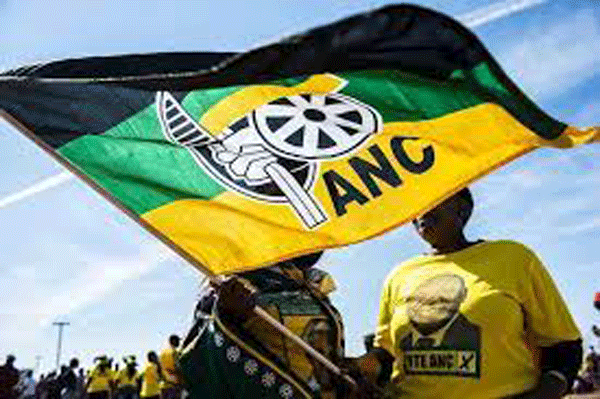
By Tapiwa Gomo
The ruling African National Congress (ANC) in South Africa faces one of its trying times since independence in 1994 and it threatens to impact the stability of the country.
The issue arises from a tiff between former President Jacob Zuma and the Zondo Commission of Inquiry. Zuma is alleged to have defied the Constitutional Court by refusing to testify for the second time at the commission saying he would rather go to jail.
He has alleged that the courts are biased and that the commission is treating him the same way the apartheid regime treated black people. With those daggers drawn, a constitutional crisis is now looming.
Before getting into the details of the potential implosion, let’s start with a background. It was in January 2018 that Zuma as the President of South Africa launched the Judicial Commission of Inquiry, also known as the Zondo Commission of Inquiry to investigate allegations of State capture, corruption, fraud and other allegations in the public sector including organs of State in South Africa. The commission is led by Judge Raymond Zondo, the Deputy Chief Justice of South Africa.
In doing this, Zuma was implementing recommendations by the former public protector, Advocate Thuli Madonsela based on formal complaint from a Catholic priest that the Gupta brothers had captured the State. By December 2020, the commission had interviewed 278 witnesses, collected 159 109 pages and massive data as evidence.
The inquiry arose from alleged fears that the Gupta brothers, allegedly working with Zuma at the time, had led to massive corruption and maladministration. For those reasons, Zuma, became the central figure to the inquiry.
In his response, Zuma has alleged conspiracies back dating from the apartheid era when he was chief of intelligence for the ANC; to current sour grapes by the white capital led by the Oppenheimer family and associates, who feared their control of the economy was shifting to the Indian brothers.
- Chamisa under fire over US$120K donation
- Mavhunga puts DeMbare into Chibuku quarterfinals
- Pension funds bet on Cabora Bassa oilfields
- Councils defy govt fire tender directive
Keep Reading
Going by his arguments, some of which are well documented, the current political crisis in the ANC is simply a battle between the Gupta brothers and white capital otherwise known as the markets.
When one looks at the historical narratives, there is nothing that the Guptas have done that has not been done by the white capital which controls, not only the economy, but everything that is political in South Africa.
White capital is alleged to have bought properties and dished shares to ANC leadership ostensibly as “start-off” soon after independence. And this and others earned white capital ANC “protection” and weakened the ANC against white capital — a scenario similar to State capture in which private interests significantly influence the State’s decision-making processes to their own advantage. This situation remains.
Hiding behind markets, this same group controls and funds almost all civil society organisations including labour movements. Their media group boasts more than 20 of the country’s most prominent print and digital news platform scattered across the country. They also have a substantial hold on the electronic media. With the economy, civil society and the media plus the support of the judicial system in their hands, there is no doubt that there are running the show from front, centre and behind.
It is not just that and their unmitigated control over institutions of democracy but there are allegations that they also tinker with the selection of the ANC leadership.
Take for example, no president in South Africa has completed a full two-term without falling victim to recall. There are also suggestions that the current President Matamela Cyril Ramaphosa is an “implant” to advance and protect the interests of white capital.
Those who make this allegation point to his lack of decisiveness on critical issues of the economy and on areas where major policy shifts need to be made. For example, what became of the land reform?
In a country whose constitution fails to address historical imbalances; rather cements the political and economic power disparities between black and white, there is an undeniable need to reorganise the matrix of power. And in the Gupta family, Zuma and associates had found both a counter to white capital and a solution to enable him to tilt the power dynamics.
And for having attempted to do so, Zuma is being used as an example to those who wish to pursue the same agenda in future and the Zondo commission is seen as the right legal frontline instrument to mete out that punishment on political delinquents such as Zuma.
There have been numerous political interventions with several missions to Nkandla village — Zuma’s homestead in the KwaZulu Natal province — to try and find a solution to mitigate a crisis in several dimensions.
Zuma still wields massive political grassroots support that transcend his Zulu tribe. He is seen by many as the man of the people. He identifies with the ordinary citizens.
Notwithstanding the many issues at stake, if Zuma gets arrested, it will be a massive embarrassment to the black South Africans and a demonstration that white capital is not only in charge but can humiliate black leadership with ease.
A simple comparison would show that Donald Trump, the former president of the United States of America has done more transgressions than Zuma and yet Americans — out of respect for one of their own — have allowed Trump to enjoy a peaceful break.
- Tapiwa Gomo is a development consultant based in Pretoria, South Africa. He writes here in his personal capacity.











